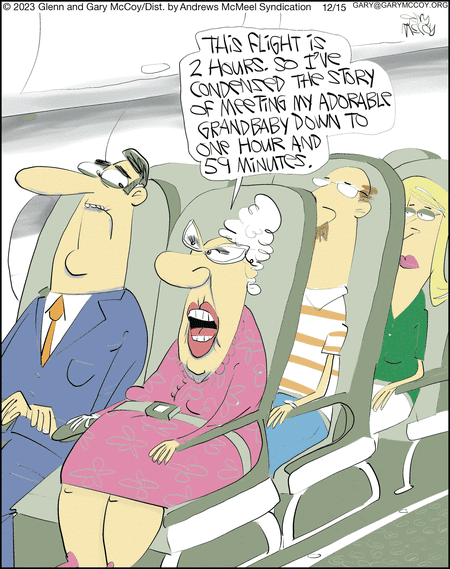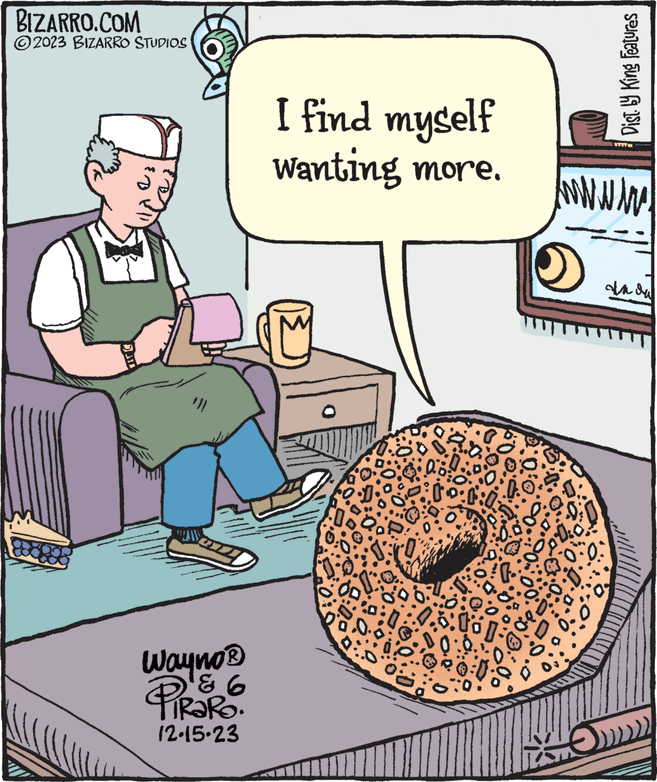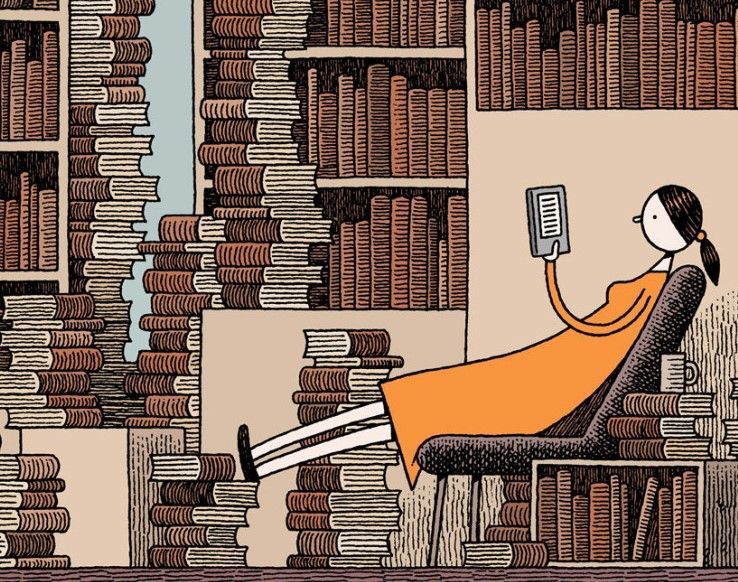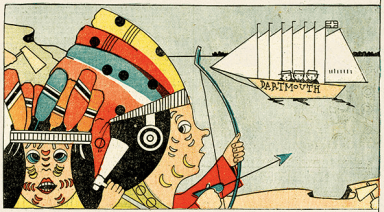CSotD: Thought-provoking Humor
Skip to comments
First Dog on the Moon offers a look at the year ahead, and he’s lucky to draw the assignment, because you just sit back and wax omniscient knowing that, as he says, a year from now, nobody will remember what stupid things you predicted.
People love predictions. I keep seeing a horoscope column come up in Google News, which reflects what people click on most.
I used to point out to kids that the horoscopes were the only thing we published that we knew wasn’t true, since even people who believe in astrology don’t believe in Sun sign predictions.
But god help the person who answers phones if you leave out the horoscope one day.
The other thing they like every New Year is to look at the year past.
Or maybe they don’t, but there isn’t any news between Christmas and New Years because all the decisionmakers are on vacation.
So reporters get to compile these tedious reflections on the past year because we’ve got to fill the pages, or the broadcast, with something. And, unlike the lucky devils who get to predict the future, we’re required to be reasonably accurate and complete or the phones will start ringing.

An oddity of journalism is that the ambitious people who go to work for major metros make a whole lot more money than those who stay back home and write local news, which today’s Flying McCoys (AMS) brought to mind.
The Washington Post put out what I suppose was a holiday travel feature, The 52 Definitive Rules of Flying, and if you think First Dog is good at spoofing pretentiousness, click there and see what the real thing is like.
The 52 definitive rules are a combination of the obvious and the Give-Me-A-Break.
No, you shouldn’t chat with people who’d rather not, but that’s not just about airplanes, and I say that as a very chatty fellow. But I’ve never run into seatmates who can’t take at least the second hint.
And if telling you such obvious things isn’t enough, they also wave privilege in your face, with a “rule” to leave the Great Unwashed behind by purchasing passes to get you through the security line, which works really well if you are vouchering the whole thing or can add another $85 of your own without blinking.
The question is, who are they writing for? Frequent flyers don’t have to be told these things, and people who can’t fly often don’t need condescending “rules” from toffy-nosed preps.
Flying’s nice, but come down to earth sometime.

Edison Lee (KFS) imagines a world in which you can get rid of encyclopedias, and his timing is excellent.
I went on a decluttering spree a few years ago, filling a half-dozen bankers boxes with books I was never going to read again (plus a few I never had), intending to donate them to an annual scholarship book sale that was, instead, canceled due to the pandemic, and never revived.
I thought about dribbling them out a few at a time to Little Free Libraries around town, but this past week, a thrift shop in White River Junction opened a book store and I was able to clear out the tower of boxes in one swell foop, for which they were grateful and so was I.
Encyclopedias, however, are something else, because nobody wants them. I was fortunate in being ahead of the curve and donated my Britannicas to a group home for troubled teens 25 years ago, before the Internet grew to a level that made them obsolete. (Encyclopedias, that is. Not troubled teens.)
I like Edison’s idea of Little Free Libraries with reference and periodical sections, because I also can’t figure out how magazines have survived in print as long as at least some of them have.
A few magazines I subscribe to online also send me very thin print versions, but I think that’s only to fool their advertisers.
I’m not living print-free: I’ve still got three bookcases full of books I couldn’t possibly part with.
One of those bookcases originally held an encyclopedia.
Juxtaposition of the Dead


Lincoln Peirce has a background in teaching, and so I’m confident he knows that no teacher in her right mind would give the assignment that became a story arc this past week (starting here). You’d have parents rioting if you asked the question in a public school and the kids would have few avenues for expression if you asked it in a parochial school. But it made for laffs, and we like laffs!
And Stephan Pastis was an attorney in real life, so when Pig asks him about the afterlife, he lets him know that everything has been properly determined and documented, and while that may seem grim to Pig, it strikes me as very good news, though it sure took some cojones to give specific examples of what won’t be happening.
I’ll leave it to you to go back and track the full story arc in Big Nate, but here’s a follow on the topic from Pearls:


Tank McNamara (AMS) took a step onto some thin ice this morning, but the joke is that bookies don’t have to cover their faces anymore. The league that suspended Paul Hornung and Alex Karras, and the league that tossed Pete Rose into the oubliette and all the other leagues have come to their senses and realized that gambling is good after all.
And you shouldn’t say it’s bad. The Guardian reports that FanDuel made a major investment in lobbying to make sure the law didn’t force anyone to suggest it might be.
It’s probably just a coincidence that I met the first “connected” guy I knew by having his teenage nephew try to sell me betting slips on football games. I liked him. I liked his uncle. His uncle was allied with some people I didn’t like.
But while the NFL has an official gambling sponsor that runs ads during games, it does run public service announcements reminding you not to bet too much. Kind of like the “drink responsibly” captions on the booze commercials and the “professional driver” disclaimers on the hot car ads.

Finally, this Bizarro (KFS) didn’t touch off any great thoughts. Just this earworm:


Comments 6
Comments are closed.